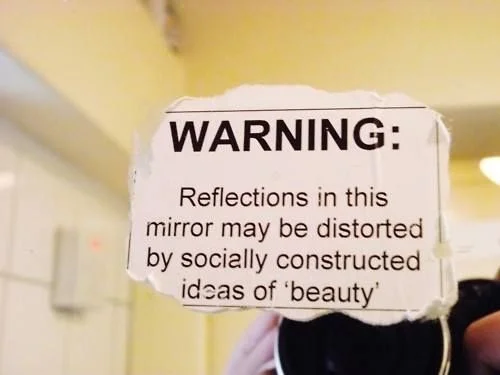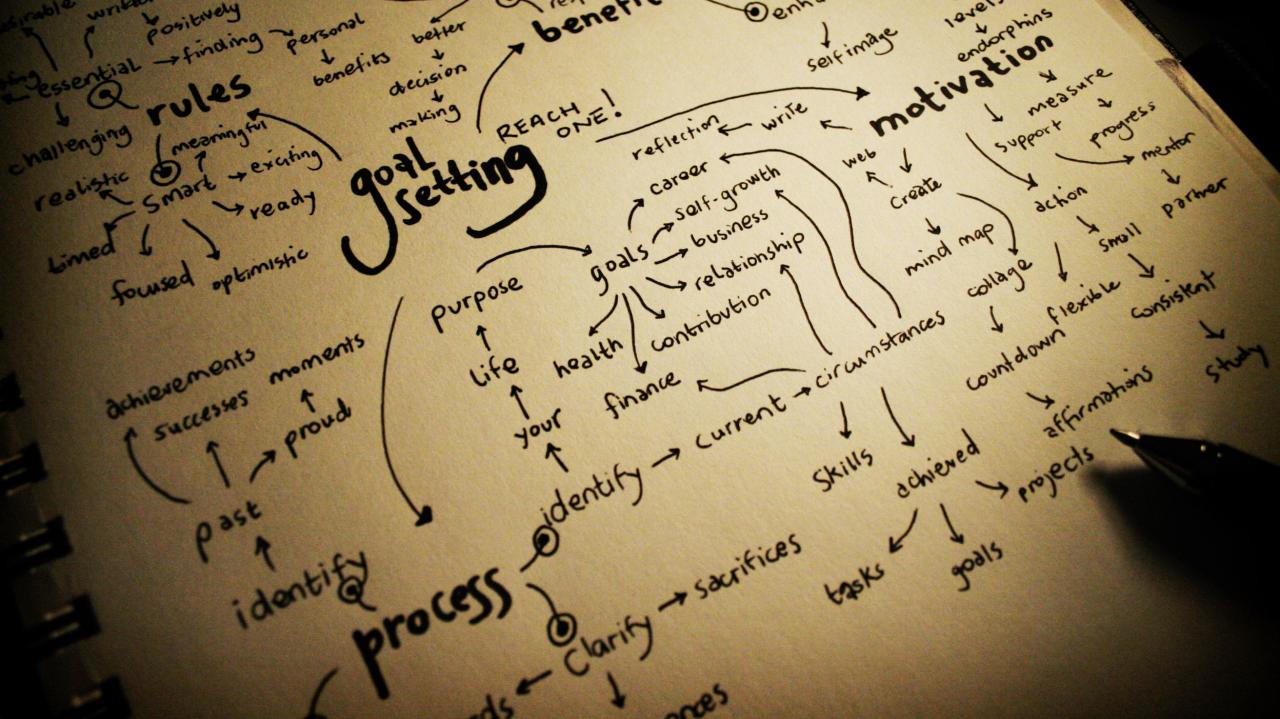The front end of Gen Z and the tail end of Millennials are entirely in the work pipeline now. “Young millennials and Gen Z employees are pushing back against the idea that they should be at a desk from 9 to 5 and prioritize work above all else. And there are signs that they could be remaking work for all of us."
Whether they look at their careers in a new way or are simply frustrated with the old paradigm, they are having a profound impact on the "world of work" and leadership as we know it.
Girls are succeeding like never before. However, girls’ leadership organizations and experts have been seeing a worrying trend on the ground: Girls working so hard, often starting in middle school, to attain what everyone says is the gold star of life - college admission - are seeing their confidence stagnate and even plummet. How is this possible when, on paper, girls look like they can achieve anything?
To blame are the techniques girls are using to achieve.
I certainly don’t mean to condone walking away from a friendship whenever anything gets hard. In fact, girls frequently tend to avoid difficult conversations, and I am a big advocate of having a well-planned-out, face-to-face conversation as a way to get to the bottom of the conflict which, ironically, ends up strengthening the relationship.
However, in my experience girls (especially young girls) don’t intuitively recognize that A) there is a spectrum of friendships, B) friendships are rarely static and C) not everyone is a friend. Ending friendships is brutal no matter if you are doing the breaking up or being broken up with. However, it is a necessary and normal part of life. But how do we do this correctly and with respect?
Have you ever felt you were in the movie Ground Hog Day? You know that one where Bill Murray wakes up to relive the same day over and over and over again? That was me one year ago. I wasn’t just stuck in a rut or a hamster wheel. I felt I was tediously living each day repeatedly.
So I decided to drop the ball (many balls actually) on purpose to see where failing on purpose hurt or helped. I learned quite a few things in the process of trying to attain a more whole-hearted life.
Increasingly, young people are feeling lonely in a crowd. As my daughter starts a new school this year I discover she is no exception.
A new study alarmed many when they discovered that young people were reporting rates of loneliness at far higher rates than older adults. The same study says social media is not the culprit. Nor is it the solution whereby one can feel connected by merely clicking a few buttons.
This is a face-to-face problem and my daughter discovers it isn’t as hard to overcome as she thought.
The Girls Leadership Book Club is, in my opinion, the go-to resource for finding empowering, age-appropriate reads for your girls. I highly recommend you join their Facebook group to get their fall 2018-2019 school year recommendations when they come out.
This list is from their recommendations for the last school year by age group. My daughter has read several on their middle school list and loved them. I’m sure you will too.
Who knows, maybe you’ll be inspired to form a book club of your own!
My daughter and I talk a lot about how important it is to "use social media to become a part of something bigger than yourself rather than making yourself bigger," to quote Rachel Simmons, author of Enough As She Is.
She understands she should avoid the 'I'm an object to be admired' posts.
After seeing her friend’s Instagram post, I didn’t want to talk about using social media responsibly. I wanted to talk about body positivity. Social media can be enemy number one in helping your daughter keep a healthy self-view. Especially when it comes to her friends.
Researchers asked 1,000 American consumers to name a famous woman in tech. Only 4% could do so. And of those?…1/4 named ‘Alexa’ and ‘Siri.’
The issue might not be so much about recognition of those women who sit at the top of tech, but the more significant problem of a shortage of female leaders overall.
Forget about recalling names, what keeps me up at night is the bigger question: How can you recognize female leadership if you aren’t exposed to it? Worse, how can my daughter be one if she can’t see one?
Rachel Simmons says in her new book, Enough As She Is, “There is something troubling stewing beneath the surface of all this (girl) success.” This brewing starts young in our daughters and can blindside us once she is in her late teen years.
My daughter is 14-years-old, so I hope I can catch her. But it is too late for many of my son’s 17-year-old friends. They are at full gallop on the hamster wheel that Simmons calls the College Application Industrial Complex. It’s dizzying and exhausting by itself, but Simmons says when dumped on top of girls who’s, “drive to achieve is fueled by brutal self-criticism and anxiety that they will fail,” we find “girls who may look exceptional on paper but are often anxious and overwhelmed in life.”
The American school system, unless it is a curved test, gives everyone a shot at getting an A. Schools abhor competition and although this is fantastic when they are young and developing their self-esteem, my kids explain to me over dinner how competition actually makes them more world ready.
In a nutshell, my daughter thought charisma was great if it was innate but if you tried to practice being charismatic, you were an imposter.
Girls are uncomfortable with anything that smacks of less than authentic. I get that. But I also know from my work with adult clients that executive presence, gravitas, and a certain energy are all qualities that leaders strive for, not to mention are evaluated on.
Bosses encourage employees to gain these skills but my daughter and, it turns out, many women are wary of looking like imposters.
Researchers suggest charisma is simply connecting with people and, to connect, you must do three things...and they CAN be learned.
Connection isn't just authentic, it's powerful.
Am I the lone voice in my daughter’s ears telling her it’s okay if she doesn’t want to pursue an interest in STEM?
Out here in sunny, tech-obsessed California, girls’ leadership often equals STEM (Science. Technology. Engineering. Math). Many parents look to STEM as the singular solution to the gnarly and complex problem of getting their girls into leadership positions, and this view always seemed limiting to me.
Thankfully, two new studies run by Google show that in order to be successful in technology you don't need to be a technologist.
The headlines on the dangers of social media over the last few months are enough to cause us parents to lose our minds.
To make matters worse, no one is talking us off the ledge. Instead, they are piling on. At after-school events to train parents on social media, police officers counsel parents and kids that if they post certain things they can go to jail or be registered as a sex offender. Lawyers explain that if you make one wrong move on social media, that post or picture can follow you for the rest of your life, hurting your chances of getting into a college or getting hired by your dream company.
Simply put, the advice to parents is control, limit, and stalk.
Before I build a moat around my daughter, I have one big question: Why isn’t anyone teaching me (and her) how to use social media as a tool for her power? Luckily, one expert has an easy exercise to help me do just that!
I was thrilled to join Maria Fuller on her 'Raising A Powerful Girl' podcast where we dish on our daughters, why we feel so impassioned to help them realize their voice, and what true leadership means for a young girl today.
What if your girl has a big goal like "improve my grades" or "get into my dream college?" We want our girls to achieve their goals, not just because we are parents, but also because it improves confidence and setting goals is an important executive functions skill.
But why do some resolutions fail and others succeed? Author, Deborah Reber, offers 8 steps to support your girl with big dreams.
So what if it's not New Year's day. January 22nd is just as good a day to go after your dream as any other!
Women have a low tolerance for conflict with other women. It’s easier to just slap a label on it than to sort it out. Unfortunately, these terms are dehumanizing and imply that the girl or woman has an inherent character flaw.
“Mean Girl” does not describe a person every time there is an uncomfortable moment in a relationship. It’s a moment, not a person’s identity.
Here are some phrases we can say instead.
Parents and girls' leadership experts implore my daughter to stop playing it safe, and start getting ‘authentic.’ This is because study after study shows that girls are so worried about being judged, they’re not willing to be vulnerable, messy and real.
But my daughter was confused. How to be vulnerable and real? How to know when to do it?
Ironically, we run into problems when we are preoccupied with being “authentic.” When authenticity itself is a singular goal, it can cause us to filter less, overshare, and even manifests itself as a chip on a shoulder.
I try to explain to her the difference between “confident authenticity” and simply brazen oversharing.
What I thought would be a conversation about social media and its detriments with my daughter (Not to worry, that blog post is coming in a few weeks!), turned into a curious conversation about decision making, time management, perfectionism, and the brain.
Yes… they are all related in this case because it's our brains' fault. (Don't you love it when our shortcomings can be blamed on biology?!)
But why should we care?
An essential trait of leadership is being a decisive decision maker. We don't admire the clueless leader who waffles or is uncertain. Therefore, we need to understand what is going on with our brain so we can take back control.
And stop watching cat videos ...
Several recent high-profile articles have highlighted the worrying trend that today's college students aren't failing well. In order to support their students, universities have started to set up programs and support to help these anxious students who have never experienced a B before.
Researchers lay the blame for these fragile young adults squarely at the feet of parents.
But are parents the only ones to blame?
Ever feel like you are only focusing on your child's weaknesses? Good news. There is something called Strength-Based Parenting that is highly effective.
When we focus on eliminating only weaknesses in our kids, we can only improve the process or person from low to a sort of average. If instead, we identify, focus on, and leverage strengths, we can attain better consistency and success. In fact, each person’s greatest room for growth is in the areas of his or her greatest strength.
If we take our natural ability and multiply it times the effort we put in, we will reach higher milestones sooner than others. Psychologists call this the “multiplier effect.”
Not only is this great for us parents but it will be a relief to your child who thinks you only see their negatives.
The current debate about which job skills will be in demand in the near future has been filling many dinner conversations with friends and family lately. We all feel for our kids. With AI and technology changing so rapidly, it's a moving target.
Here are a few experts' take on what our kids can "bank" on.
My 13-year-old daughter’s fears before her first Student Council meeting were not unlike the fears many women have. We believe we must act differently in a leadership role-saving our giving self for our personal lives and then turn around and act like a taker in our leading lives.
Bill Burnett and Dave Evans, authors of the book, Designing Your Life: How to Build a Well-Lived, Joyful Life, say, “Many people operate under the dysfunctional belief that they just need to find out what they are passionate about. Once they know their passion, everything else will somehow magically fall into place.”
William Damon, director of the Stanford Center on Adolescence, says that the reality is only one in five young people between twelve and twenty-six have a clear vision of where they want to go, what they want to accomplish in life, and why.
I personally think this is a realistic, if not healthy, statistic. Apparently, I’m in the minority.
The following 9 TED talks are, in my opinion, Must-See-TV for anyone with a young girl in their life. Each of these talks takes on one specific idea to spur either a stronger sense of self or of leadership.
Research shows the most outstanding leaders take the time to reflect. “The more girls know who they are, the more they can believe in themselves, and trust in the power of their own intellect and intuition. This self-trust is the foundation of self-confidence, the foundation girls need to assert their voice and remain resilient, to rise up as leaders - and to keep rising." - Elizabeth Perlman, founder of the intuitive writing project.
What is the best research-backed method to reflect? Journaling. Although most introverts are naturally drawn to this exercise, everyone can benefit. Here are the best tips and strategies from the industry's experts.
28 tips may seem like a lot, however, considering more Americans fear public speaking than their own death, I believe more tips are better than less.
Public speaking is a skill, not a talent. It needs to be practiced at all ages. Avoiding public speaking only exacerbates the problem by reinforcing the fear. Besides, if you never present, you’ll never realize that you won’t actually die!
Strong leadership in girls isn’t just about closing the STEM Gap, or the Negotiation Gap, or the C-Suite Gap, or even the Congress Gap. It’s foremost about closing the Leading-Yourself Gap. That gives you power.
If you can’t lead yourself, you can’t lead others. If you can’t lead yourself, someone else may try to take advantage of you.
“Between childhood and womanhood, girls encounter a phenomenon known as "losing voice," according to studies published by Harvard University."
"74% of 12-year-olds surveyed by Girl Scouts of America list "improving the world around me" as one of their favorite activities, but a lack of confidence holds them back from taking leadership in the areas of change they care most about. Only 1/3 of middle-school girls today believe they can be a leader.” - Girls Driving For a Difference -
Getting girls to bridge the gap from doubting they can be a leader to leading social change they care about, is what these 5 steps aim to do.
Rather than stacking a team with the highest IQ’s, it’s more important to create a group with talent AND social sensitivity. The best way to get social sensitivity on a team? According to MIT, ensure the team includes women.






























Women loathe office politics and tooting one’s own horn. We don’t like talking about ourselves. I see so many adult women who think that if they focus on doing incredible work, someone somewhere will notice them. Unfortunately, more often than not, they’ll get passed over for promotion for someone who is just better at promoting themselves. If you aren’t playing politics, someone else will do it for you…often with disastrous results.